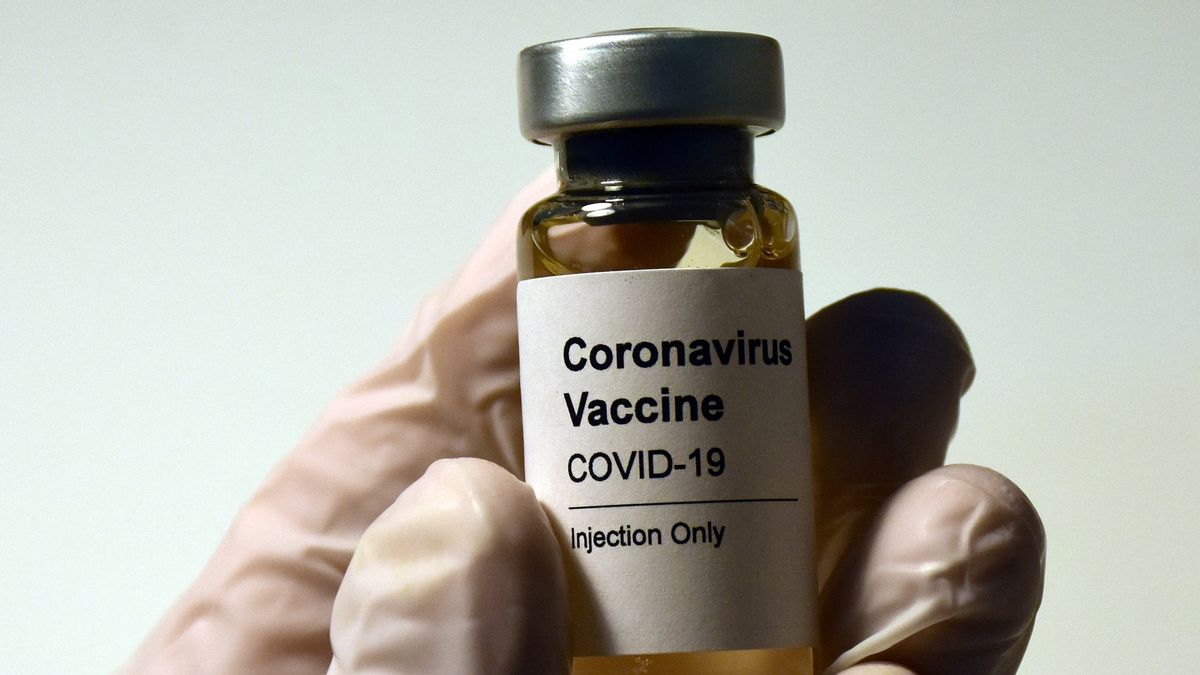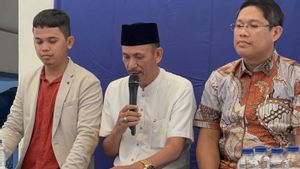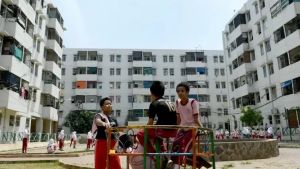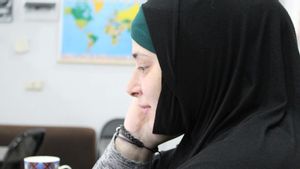JAKARTA - The Confederation of Indonesian Trade Unions (KSPI) and Indonesian workers are supporting the government's efforts to fight the COVID-19 pandemic by vaccinating. However, KSPI insists that providing vaccines to people including workers and their families to prevent the spread of COVID-19 is the duty of the state.
KSPI President Said Iqbal said whatever form and strategy of vaccine delivery including financing to all people is the responsibility of the government. Therefore, KSPI is ready to participate in the vaccination program. But KSPI is concerned about the provision of vaccines that are done on a paid basis.
Furthermore, Iqbal said if this continues, it should be expected that there will be commercialization that will only benefit certain parties.
"Any trade transaction in the economic process has the potential to lead to commercialization by vaccine manufacturers and the government as regulators, against consumers in this case people including workers who receive vaccines," he said, in Jakarta, Friday, May 21.
Iqbal said the paid vaccination program known as gotong royong vaccine, even though the cost of vaccination is paid by employers, it is feared that there will be commercialization of vaccines or buying and selling transactions of vaccine prices controlled by manufacturers (vaccine makers).
As is known, in the decision that has been signed by The Minister of Health Budi Gunadi Sadikin on May 11, 2021, it is explained that the price of gotong royong vaccine made by Sinopharm is Rp321,660 per dose, where the tariff of vaccination services is not included in the price.
For vaccination service rate of Rp117,910 per dose. Thus, if summed up the total price of one injection Rp439,570 or around Rp800 thousand for 2 injections.
Related to that, there are several reasons that KSPI concerns that the gotong royong vaccine will lead to commercialization.
First, based on the rapid test program to detect whether or not a person is exposed to the COVID-19 virus, both rapid tests, antigens, and PCR, price mechanisms in the market tend to follow market law. Initially the government ratified the rapid test program, but later rapid tests occurred commercialization at a burdensome price.
For example, said Iqbal, there is a duty of rapid tests before boarding planes and trains, meeting officials, there are even workers who enter work is required rapid tests. Finally there is a kind of commercialization, from which it was originally free. Even companies that initially ratify rapid tests for workers in their respective workplaces end up having to do it independently or pay for themselves.
"It's called commercialization. Not closing the possibility of a mutual vaccine program also happens the same thing. Initially financed by the company, but in the future the cost of vaccines will be charged to workers," he explained.
Second, the financial capabilities of each company are different. Iqbal estimates, the number of medium-to-upper-income companies that can afford vaccines is not more than 10 percent of the total number of companies in Indonesia or in other words only 20 percent of the total number of workers throughout Indonesia whose companies can afford the vaccine gotong royong.
This means that almost 90 percent of the total number of companies throughout Indonesia or more than 80 percent of the total number of workers in Indonesia, the company can not afford the vaccine gotong royong.
"Then the ends will come out the government policy that every worker must pay for the cost of vaccine gotong royongnya. If this happens will Kadin and Apindo be responsible? Do not make a sweet policy in front but bittersweet in the back for Indonesian workers," he said.
The number of workers in Indonesia is very large. According to bps data 2020 the number of formal workers is about 56.4 million people. Informal labor is about 75 million people. Thus, the total number of workers in Indonesia is about 130 million people. Imagine with his family, then the total number of workers and their families is close to the figure of 200 million people.
Iqbal said, the question is whether the whole company can afford to pay 200 million people or at least 130 million workers to follow the vaccine gotong royong? If the price of vaccine gotong royong Rp800-100 thousand multiplied by 130 million workers, then the funds that must be provided reached Rp104 trillion.
"So this is just a lip service project that is only sweet in rhetoric or lip sweetener but difficult to implement at the implementation level. The ends of the gotong royong vaccine will only burden workers in terms of financing," he said.
Third, iqbal continued, amid the explosion of layoffs, reductions in labor wages, and the economic recession that currently still threatens economic growth is still negative. It seems impossible to provide additional costs to the company to organize the vaccine.
Iqbal argues the cost of the gotong royong vaccine will definitely burden the company and in turn will actually suppress the welfare of workers.
In addition, Iqbal said considering the type of vaccine used is different from the vaccine that has been given for free by the government, Said Iqbal reminded that workers are not used as vaccine trials. In other words, it must be ensured that the vaccine used is halal and safe.
"In essence, KSPI expects the government to provide vaccines for workers free of credit," he said.
Iqbal said, if the government needs an additional budget to organize this gotong royong vaccine, the government should raise a little and reasonable corporate corporate tax value (PPH 25) and take a portion of the Health budget which in the Health Law the magnitude is 5 percent of the state budget by doing bureaucratic efficiency in the field of health.
"KSPI agrees with the gotong royong vaccine, but the cost is borne by the government. Because it is in accordance with the orders of the constitution as stipulated in the 1945 Constitution, the Health Law, and the Quarantine Law; COVID-19 vaccination program is the responsibility of the state," he said.
The English, Chinese, Japanese, Arabic, and French versions are automatically generated by the AI. So there may still be inaccuracies in translating, please always see Indonesian as our main language. (system supported by DigitalSiber.id)









